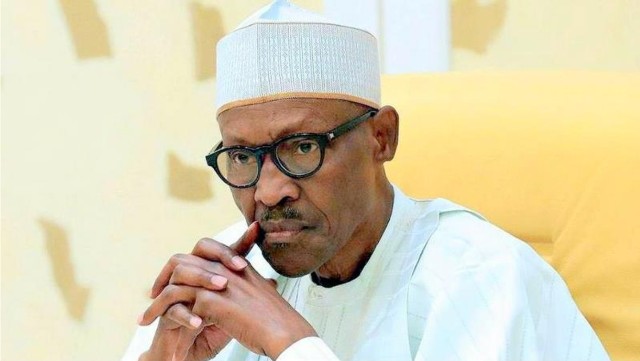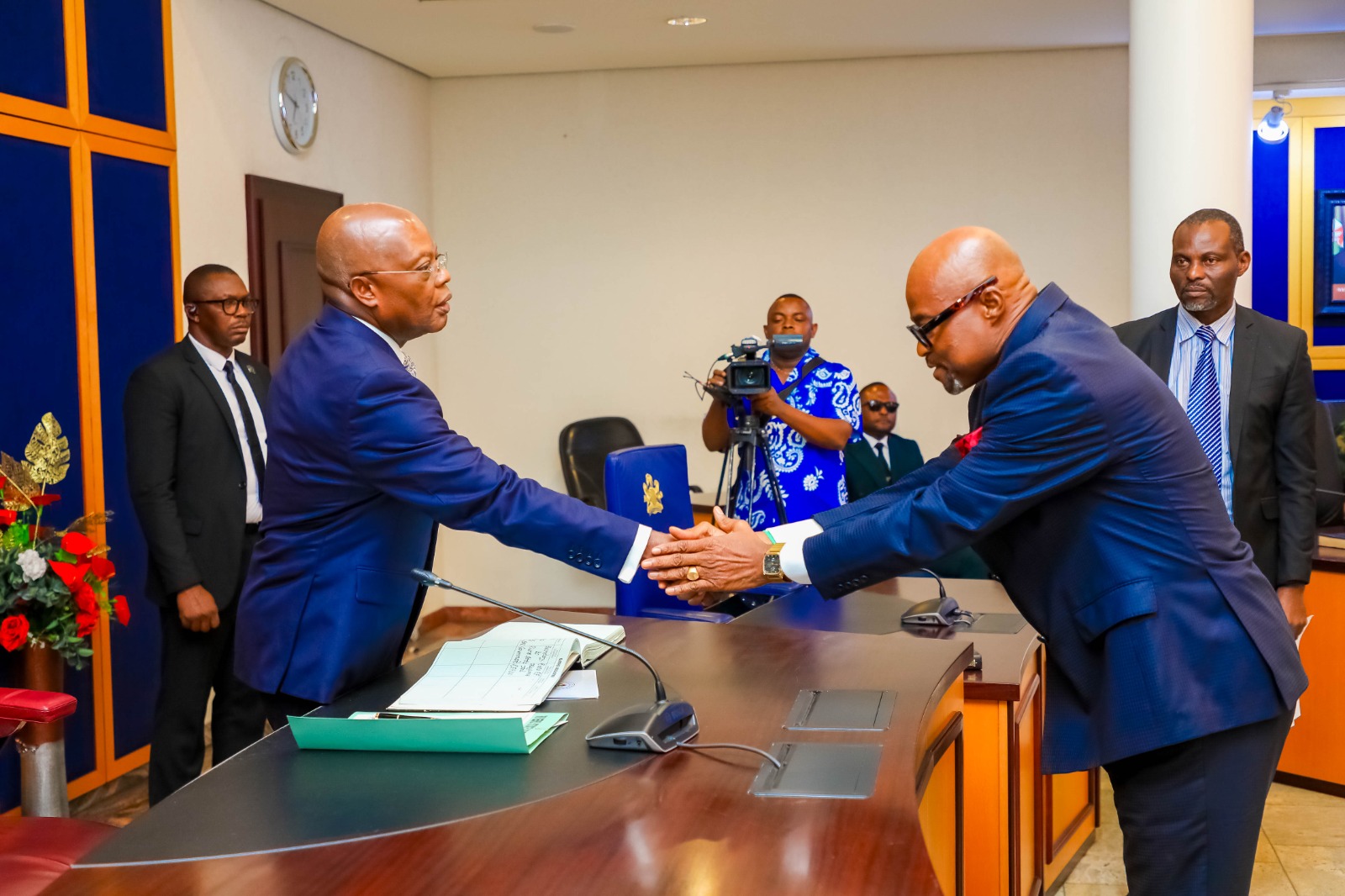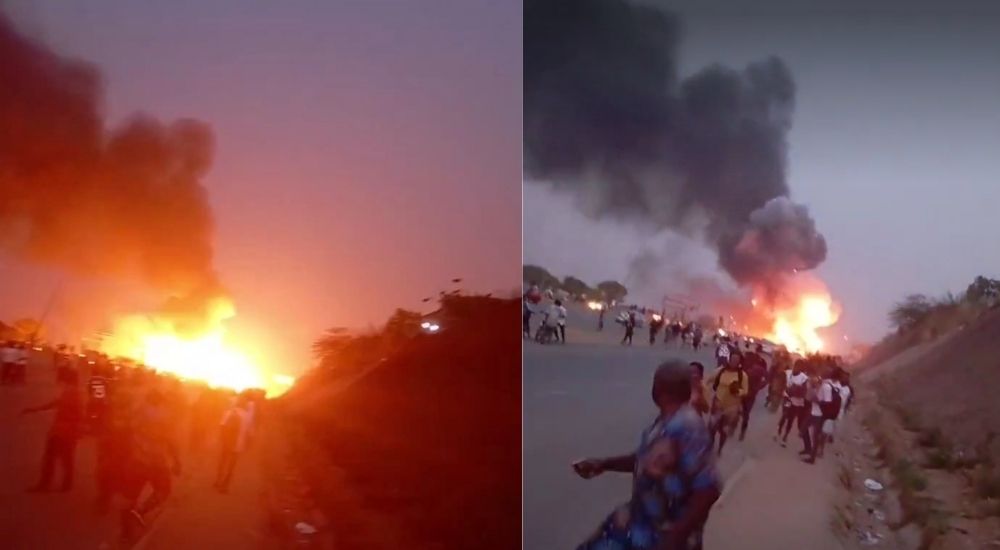Featured
Nigeria’s Democracy: How Well Have We Fared?

For 19 years successively, Democracy Day has become a special day in Nigeria. It is held annually on May 29. The day commemorates the restoration of democratic rule in Nigeria, when former President Olusegun Obasanjo assumed office on May 29, 1999. This ended multiple decades of military rule that began in 1966 which had been interrupted only by a brief period of democratic rule.
After attaining independence in 1960 from Great Britain, Nigeria fought a civil war following the first of many military coups in 1966. Democracy was succinctly restored from 1979 to 1983. But for most of its independent history, Nigeria was ruled by a series of military juntas. The last noticeable military dictator, Gen. Sani Abacha, died on June 8, 1998.
His successor, Gen. Abdulsalami Abubakar, promised a one-year transition to democracy, and accordingly a new constitution was adopted. Elections were held and retired Gen. Obasanjo, who had previously governed Nigeria as a military ruler, was elected the new president.
The end of military rule ushered a new era of regular elections as well as the return of civil liberties, free press and an end to arbitrary arrests and torture, although human rights violations still occur regularly. Nigeria also began a long campaign against corruption that had paralyzed its economy and severely tarnished its international reputation.
Since the inception of democracy and civil rule, how have we fared as a nation? Have we accomplished the goals and objectives we set out to achieve when we aspired to have sovereignty?
In spite of the ups and downs of our democratic experience, one believes that there is at least something to celebrate in that in our 57 years of existence, this is the first time the country has experienced uninterrupted democratic practice for 19 years.
Besides, a feat was achieved in 2015 when for the first time an opposition party took over power after emerging victorious in a general election. This was something thought to be a phantasm. The result of that election improved Nigeria’s image globally and confounded nations which hitherto taught nothing good could come out of the country.
Regardless of such accomplishments several of which are not specified, there are multitudinous challenges confronting democratic consolidation and good governance in the country.
Corruption constitutes one of the greatest challenges and threats to the democratic unification. It reached its zenith when Transparency International in its 2004 Corruption Perception Index report projected Nigeria as the second most corrupt country in the world (132nd out of 133 countries surveyed).
Since the return of democracy in 1999, election and democratic practice have been more of a thing of ‘war’, vendetta and violence. In other words, voting became for most Nigerians a matter of ritual performances than the actual election of leaders.
Elections and democratic practices are personalised by electoral malpractices, political intolerance, economic mismanagement, use of political office for personal enrichment, political thuggery, lack of intra-party democracy, insecurity, manipulation of religion and ethnicity to achieve selfish political ends, among others.
Poverty is another factor that constitutes grave challenges to democratic coalition and good governance. Ironically, Nigeria is blessed with abundant human and natural resources, yet its people are poor. The nation ranks among the world’s poorest countries.
According to the United Nations Development Programme (2009), most Nigerian citizens contend with a life of abject poverty. Thus, about 70% of the population are poor. The average Nigerian lives in self-alienation as they lack the wherewithal to afford the basic necessities of life.
The behaviors of the political actors have remained an immutable cause for concern. Like it has been since the First Republic in 1960, political parties are riddled with one crisis or the other. Even with the nearly two decades of democratic practice, indications from the political parties are to the effect that many of them are on ‘life support’.
In advanced democracies, for instance, democratic culture is entrenched through the instrumentality of political party ideologies. But in our clime there is complete absence of party ideologies. That is why political scholars have severally described the character of political parties in Nigeria as a mockery of an ideal democratic system.
Another daunting challenge of the present democratic dispensation is insecurity. Since the return of democracy, the country has been experiencing ethno-religious crises and sectarian clutches exemplified by the Boko Haram onslaughts and the recent herdsmen activities that have claimed several lives. This is a veritable threat to the unity of the country.
There is a presumption that despite multiple expropriations, Nigerians can take solace in the knowledge that they practice democracy. But the kind of democracy practised by Abuja and the states has delivered neither improved standards of living nor abstract benefits such as press freedom or human rights; instead it provides the perfect cover for massive corruption.
I have sensed a disturbing smugness in Nigerian politicians and intellectuals as they attempt to foist democracy on the rest of us. They assume that the mere practice of the system is sufficient for us. Meanwhile the concept as modified in the country stands empty of its substantive content. This misjudgment is indeed disturbing, obscene and offensive.
With such a low dividend on democracy, and with democracy being so costly and toxic to the body politic, it is no surprise that many Nigerians have begun to question their loyalty to the received notion that democracy is superior to its alternatives.
Since democracy brings development and improved living, Nigerians should expect much from it. Therefore, it is time they began to see some of the promised returns. If they don’t, they have a right to question the assumed connection between democracy and development and to become disillusioned.
The truth is that Nigeria’s democracy is fatally flawed and we are all headed for an implosion if nothing is done about it. The disenchantment with our own democratic practice and its many failures is real. We ignore this reality at our own peril.
If we remain averse to the advancement of popular democratic tenets, we will be frequently confronted with crises that endanger the very foundation of the union. After all, what is democracy worth if the way we engage in it imperils our country and its people and widens the crevices that divide us? Would we rather preserve a pretentious democracy and lose the nation?
Arnold Alalibo
Featured
Bring Your Wealth Of Experience To Governance, Ibas Tasks New SSG

The Sole Administrator of Rivers State, Vice Admiral Ibok Ete Ekwe Ibas (rtd), has charged the new Secretary to the State Government (SSG), Prof Ibibia Lucky Worika to bring his wealth of experience to bear in governance of the State.
Vice Admiral Ibas (rtd) gave the charge shortly after swearing in the new SSG at the executive chambers of Government House on Wednesday night.
The Administrator who congratulated Prof Worika on his appointment said the choice was not merely an administrative decision but a statement of intent.
Vice Admiral Ibas (rtd) explained that the new SSG has an unparallel expertise in law, policy and international governance, which align perfectly with the mission to restore law, order, integrity and public trust in Rivers State.
He said: “To our new SSG, the task ahead is onerous, but your track record leaves no doubt in our minds that you will prove your mettle. Rivers State needs your intellect, grit and unweaving dedication. Together, we will write a new chapter of progress for this great state.
“Prof Worika’s role will be critical in driving this vision, ensuring that every policy, every decision and every action is in consonance with this administration’s mandate to restore law and order, stabilize the polity and to create the necessary conditions for the restoration of democratic institutions and representations.”
Vice Admiral Ibas (rtd) pointed to his maiden address to Rivers people wherein he emphasised that his administration will be committed to delivering an effective governance that is anchored on transparency, accountability and service.
He therefore, enjoined the new SSG to brace up to the demands of his office, and offer his best service as required while also working cooperatively with civil servants.
Vice Admiral Ibas (rtd) said: “You have no time to settle down. You must roll up your sleeves and get to work with the team.
“Our civil servants with whom we will work closely to run this administration are critical stakeholders and we must work with them to ensure that the state continues to function effectively during this administration.
“To the Permanent Secretaries and civil servants as a whole, once more I will ask your kind cooperation and support as we work to achieve our objectives at this time,” he added.
Featured
I Am One Of You, Sole Administrator Tells Rivers People …Warns Against Violence, Crude Oil Sabotage

The Sole Administrator of Rivers State, Retired Vice Admiral Ibok-Ete Ibas (rtd), has assured residents that he is not in the State as a partisan actor or political competitor but as a stabilising force to restore governance and order.
In a state broadcast yesterday, Ibas, who assumed duty at Government House, Port Harcourt, emphasised his commitment to protecting civil liberties and ensuring the safety of all citizens.
However, he issued a stern warning against crude oil sabotage and violence, urging residents to resist any temptation to return to past hostilities.
“For decades, I have dedicated my life to the service of our great nation—first as the 20th indigenous Chief of Naval Staff and later as Nigeria’s High Commissioner to Ghana. I answered this call out of the need for peace in Nigeria, and most importantly, in Rivers State,” Ibas stated.
Describing the prolonged political impasse as a major setback to governance and democracy, he acknowledged the hardships faced by families and businesses due to the prevailing uncertainty.
“As a son of the Niger Delta, I am one of you. I feel the weight of this crisis on families, businesses, and the future of our people,” he said.
Ibas commended President Bola Tinubu’s decisive action in declaring a state of emergency in Rivers State, stressing that it was a necessary move to restore stability and revive economic activities.
“My mandate is clear: restore law and order, ensure stability, and create an enabling environment for economic growth. But this mission requires collective support from all stakeholders, regardless of political affiliation or ethnicity,” he stated.
He discouraged attacks on oil infrastructure, reminding residents of the devastating environmental and economic consequences of such actions.
“The Niger Delta has moved beyond the destruction of oil facilities. We must resist the temptation to return to those ugly days,” he cautioned.
While pledging to uphold civil liberties and the rule of law, the Sole Administrator warned that lawlessness and violence would not be tolerated.
“We will not act arbitrarily, but we will not hesitate to deal decisively with anyone who threatens the peace and stability of Rivers State,” he declared.
Ibas revealed that he had concluded a State Security Council meeting where strategic measures were outlined to de-escalate tensions and prevent further conflict.
Expressing gratitude to President Tinubu for entrusting him with the responsibility, he also acknowledged the National Assembly for approving the emergency declaration.
“I will work closely with the national leadership under the guidance of the President. I am optimistic that Rivers State will emerge stronger and greater,” he concluded.
Featured
Abuja Truck Explosion Death Toll Rises To 10 …As Another Truck Crashes On Same Spot

The Federal Capital Territory Emergency Management Department has confirmed that 10 persons have died in the truck explosion that occurred near Karu bridge, along the Abuja-Keffi Expressway, on Wednesday.
The FEMD’s Head of Public Affairs, Nkechi Isa, confirmed the numbers in a statement, yesterday.
The Acting Director General of the Emergency Department, Abdulrahman Mohammed, had earlier confirmed that eight persons had died as of yesterday morning, with five confirmed dead on the scene, and four others burnt beyond recognition.
““Five people were taken dead from the scene yesterday (Wednesday). Out of the people that were injured, one died, making six. Then this morning (yesterday), when I asked my people to go round, they discovered that two had already died again, making eight. Four of them from yesterday were burnt beyond recognition.”, he explained.
However, in her statement, Isa said the Head, Forecasting Response and Mitigation of FEMD, Mr Mark Nyam, said eight bodies were deposited at the Karu Hospital Morgue, one body at the Asokoro Distinct Hospital Morgue while another body was deposited at the National Hospital.
He added that some victims had been referred to the Gwagwalada Teaching Hospital, Federal Medical Centre, Keffi, and Cedercrest Hospital Abuja for proper care.
Part of the statement reads, “The FCT Emergency Management Department FEMD can confirm that 10 persons lost their lives to the truck explosion that occurred at Karu bridge along Abuja / Keffi expressway.
“The Head Forecasting Response and Mitigation of FEMD, Mr Mark Nyam said eight bodies were deposited at the Karu Hospital Morgue, one body at the Asokoro Distinct Hospital Morgue while another body was deposited at the National Hospital.”
He informed that over 30 persons suffered various degrees of burns.
“Some of the victims have been referred to Gwagwalada Teaching Hospital, Federal Medical Centre,Keffi and Cedercrest Hospital Abuja for proper care,” he said.
Isa also stated that no fewer than 10 vehicles were burnt during the incident, adding that the FEMD boss after a visit to the incident scene, appealed to motorists to observe traffic rules and regulations.
He also cautioned against reckless driving, dangerous overtaking and poor maintenance of vehicles, while urging FCT residents to always use the 112 emergency toll free number in the event of an emergency.
Meanwhile, barely 24 hours after the incident, another fertiliser-laden truck has collapsed on the same spot.
The Tide learnt that the incidence occurred at about 3:54pm yesterday.
The Head of Public Affairs of the FCT Emergency Management Department, Nkechi Isa, confirmed the accident in a statement, stating that the truck collided with a Hijet and a dump truck, adding that no life was lost.
She cautioned road users to drive with caution as the Federal Road Safety Corps was making efforts to tow away the affected vehicles, to avoid traffic built up.
“Another accident has occurred under Karu bridge along the Abuja-Keffi Expressway. Thankfully, no life was lost to the incident. Our Search and Rescue say the accident occurred when a truck laden with fertilizer ran into a Hijet and a dump truck also known as tipper.
“Motorists are advised to drive with caution as the Federal Road Safety Corps is taking steps to tow away the affected vehicles in order to avoid traffic built up,” the statement read.
Meanwhile, several videos showed some persons trying to clear the fertiliser bags from the fallen truck to ease traffic.

